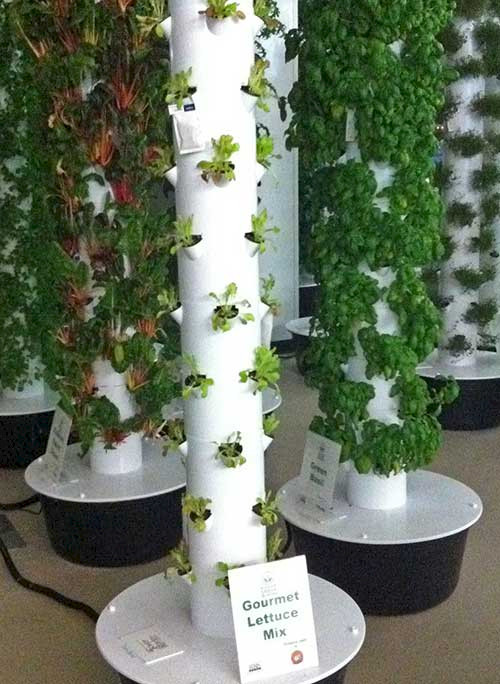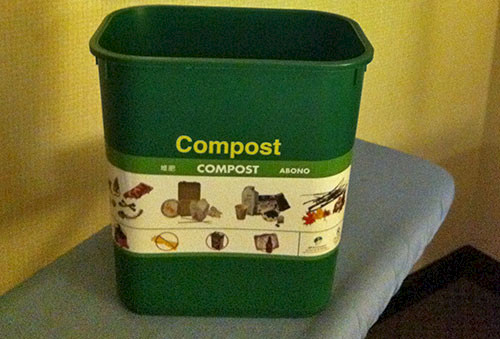A pub always needs a privy
Marcus Griswold ·During a recent cross-country trip, I noticed innovative measures that local governments are taking to become more sustainable. The most striking part of this is that local governments cannot do this without support (hence the title – public efforts need support from private businesses). While, local and state governments can drive innovation by assuming the risk associated with new initiatives, a sustained effort will depend on commitment from the business community to move these initiatives to the next step.
Year round gardening in Chicago?
The Chicago O'Hare Urban Garden is the world's first aeroponic garden, resulting from a public-private partnership between the Chicago Department of Aviation and HMSHost. Aeroponic gardens grow plants without soil, by providing a constant supply of water mixed with a mineral nutrient mix (basically a multivitamin). Not only does the garden serve as a relaxation zone in a bustling airport environment, but the food can be produced year round with little water or pesticides and is used by local airport vendors, such as Wolfgang Puck. How much more local and sustainable can you get?

Zero Waste San Francisco
After entering my room at the Holiday Inn Express in San Francisco, I discovered another pleasant surprise – a compost bin. In my experience finding a recycle bin in a hotel room is asking for a lot, but a compost bin exceeded my expections. Digging a little deeper I found out that San Francisco has the first large scale urban collection of food scraps for composting in the country and the city needs it. Currently, 36% of the waste going to the landfill is compostable. But this is changing – at least 5,000 businesses already send 600 tons of food scraps a day to the local composting facility. This isn't entirely selfless – businesses can save up to 75% of their disposal costs by composting.

Both of these examples bring to question: What should we be doing? We know that the earth supports 7 billion people now and we expect another 3 million by 2100. We also know that implementing zero waste strategies such as those above will reduce our emissions and slow climate change. This also provides food at a time when farms are being paved over and the efficiency of agricultural production is peaking. Frankly, zero waste is the new "Reduce, Reuse, Recycle". To see how Maryland is reducing its environmental footprint and moving towards less waste, take a look at the state's environmental footprint.